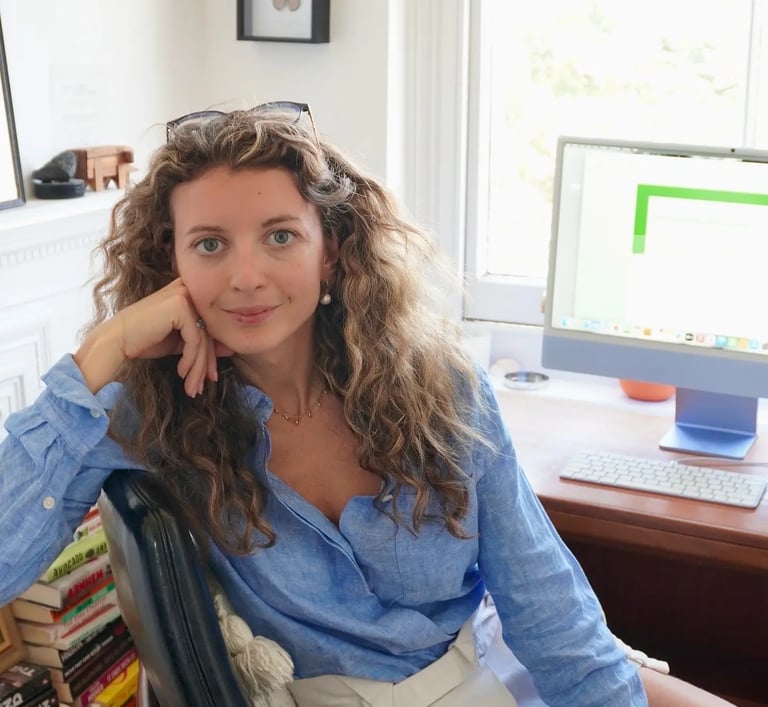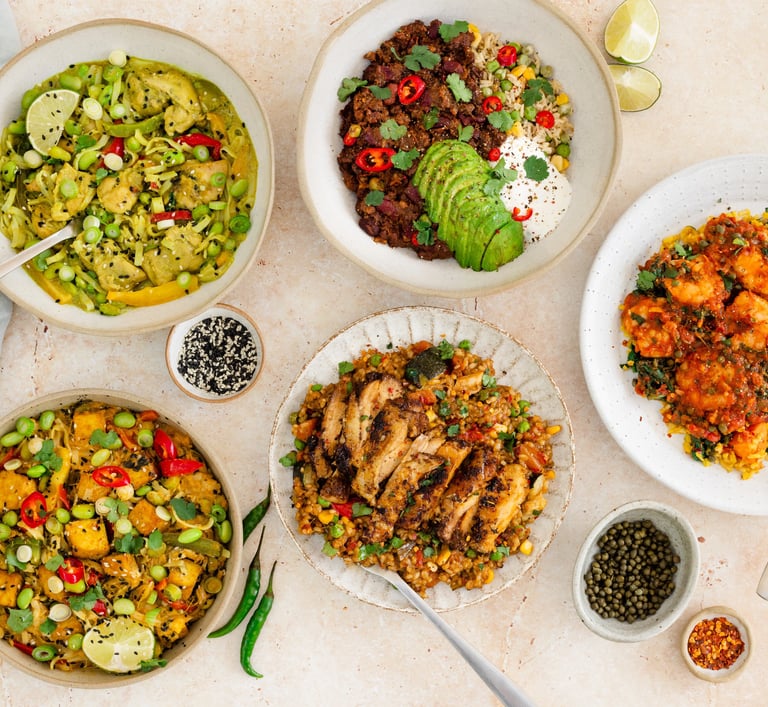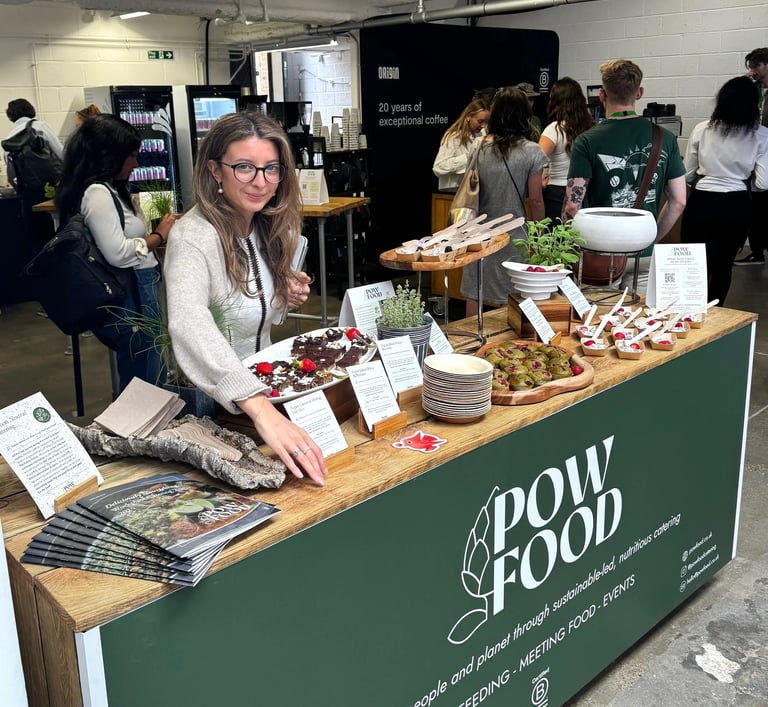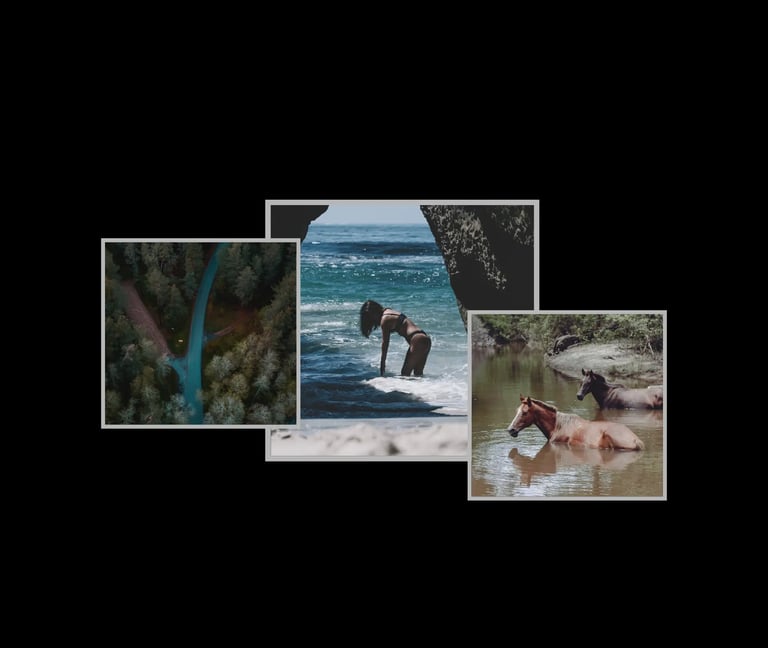Food as Medicine: Emily’s Vision for a More Nourished World
PEOPLE & STORIES
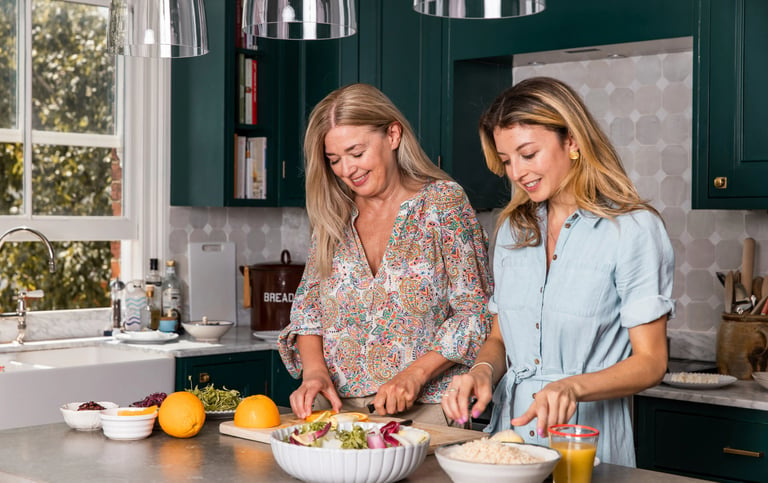

Name: Emily Warburton Adams
Title/Profession: Co Founder, Head of Sustainability
Based in: United Kingdom
Instagram: @english_ems
Known for: Emily is known for redefining modern wellness through her conscious food brand Pow Food, championing nourishment, balance, and purpose-driven living.
Emily has lived the extremes of wellness culture - from the silent struggles of an eating disorder in her teens to becoming a leading voice for mindful, balanced living. Now the co-founder of Pow Food, a conscious catering company she runs alongside her mother, she’s turning her personal healing journey into a broader mission: to redefine what it means to nourish ourselves, inside and out. With a background shaped by recovery, a passion for education, and a firm belief that food should be both joyful and functional, Emily is part of a growing movement challenging outdated ideas around health. In this conversation, she reflects on her path, the lessons learned, and how she's helping others rewrite their relationship with food - on their own terms.
1. Emily, your journey in the wellness space feels so intentional and heart-led—can you take us back to where it all began? What first sparked your passion for holistic health and conscious living?
Wellness has been an integral part of my life since my early twenties. I say that even though I was always conscious about my health, because it was then that I started learning how to truly care for myself - to find balance, rather than using elements of wellness like food or exercise in extreme ways.
As a teenager, I became infatuated with diet culture and the societal idea of what “wellness” was supposed to look like. That led to years of struggling with an eating disorder and several inpatient admissions. But through my recovery journey, I began to understand the real power of food - not as something to fear or control, but as something to nourish my body and support my mind. I shifted my focus from calories to nutrition, from exercising to burn off food to moving in a mindful way that felt good. I started to listen to my body, maybe for the first time.
That experience shaped not just my life but my purpose. I’m now the co-founder of Pow Food and Pow Food at Home which I run with my mother, Ali, who was a core part of my recovery journey. Pow Food is a conscious catering company, and the sister business a home-delivery brand offering nutrition-led, sustainable ready meals and meal plans. It’s everything I once needed: real food, made with care, no additives or extremes, just nourishment that supports people to feel their best, and with a strong educational element, we empower people to eat what's right for them.
We’ve lived through decades of diet trends and quick fixes, constantly being told what’s good or bad for us. But I think we’re now in an intense yet beautiful time where we’re encouraged to explore and figure out what’s right for us. There’s more awareness, more permission to slow down, and to do things on our own terms. We also have access to so much more information which is empowering, especially at a time when food is made so differently than it was even 20 or 30 years ago. Convenience has taken over, and with that comes the responsibility to be more mindful about what we’re consuming and where it comes from.
My journey has taught me to be truly grateful to be alive, and that food should bring joy but also that if food isn’t your medicine, medicine can become your food. With anything in life, it's worth asking:
Will this bring me joy?
Is it aligned with my long-term values?
Will my future self thank me for it?
That’s where my passion for wellness and conscious living really began, and why it continues to guide everything I do, both personally and through Pow.
2. What are some common misconceptions people have about healthy eating, and how do you help them reframe their mindset around food?
One of the biggest misconceptions people still have about healthy eating is that it’s restrictive, boring, or somehow less comforting and enjoyable. There’s this lingering idea that if something’s “good for you,” it won’t taste great, or that you have to give up the foods you love in order to be “healthy.” I really understand where that comes from, especially if your experience with wellness has been shaped by diet culture or extremes.
Food should absolutely bring you joy. It should be comforting, delicious, and part of your everyday pleasure, while also helping you feel energised, grounded, and well in the long run.
I advocate the 80/20 rule - that 80% of the time, we can choose foods that nourish us and support our goals, and 20% of the time, we allow ourselves our vices, our cravings, our moments. Because no one is perfect all the time, nor should we be. Flexibility is part of a sustainable relationship with food, and it allows us to enjoy the diversity.
3. What does a typical day of nourishment look like for you - from morning rituals to meals?
A typical day of nourishment for me really depends on the season I’m in, right now I’m off uni for the summer (i'm studying nutrition), so my days look a little more spacious and fluid. But when I’m studying, I get up earlier and dive onto the computer to fit in one to two hours of study before work. It’s not always what my immediate self wants at 6:00am, but it’s part of my longer-term goals and sense of fulfilment, and that matters just as much to me as food or movement when it comes to feeling nourished.
At the moment, my mornings start slower. I get ready and head out for a 30–40 minute walk, which is a total non-negotiable before I dive into work. It’s my time to ground, reflect, and move gently. I’ll usually pop in a 15-minute morning meditation while walking, and I get a mushroom coffee from Klear Labs, my go-to right now as I’ve been working on reducing my caffeine intake but still love that feeling of a warm, functional morning ritual.
For breakfast, I’ll have a Pow bircher sachet mixed with kefir and berries, it’s delicious and keeps me going for hours. It also has a great balance of protein, fibre, and healthy fats, which so many birchers or cereals just don’t.
Where I work from changes daily - I might be at home, at my mum’s, in the office, or on site with clients, so my lunches and routine vary a lot. But one thing I really love is that when I’m in the office, our team always sits down together around 1:30 after service to eat. It’s such a lovely moment to connect and try whatever the chefs have cooked up that day, a perk I’ll never take for granted!
In the afternoon, if I need a little pick-me-up, I’ll have a Mission yerba mate drink and some Hu chocolate or a Pow energy ball. Mission drinks are great, no sugar, no artificial sweeteners or weird ingredients, just clean energy that doesn’t give me the crash.
After work, around 6 or 7, I’ll usually go for a run or do a class. It’s less about performance and more about moving through whatever the day brought, I find it such a good way to decompress. In the evening, my partner and I take it in turns to cook dinner (or we’ll have a Pow ready meal). After that, I’ll often do another couple of hours of work, then wind down with a book or something easy to watch, and use Sweetbee's magnesium rub which has become a ritual.
To end the day, we listen to an audiobook together in bed. It’s such a small thing, but it throws me back to childhood and helps me sleep. It’s little moments like that that feel like real nourishment too.
4. Are there any ingredients or superfoods you’re especially loving at the moment?
Right now, I’m taking shatavari, an adaptogen and antioxidant that’s especially supportive for female health and hormone balance. I also take functional mushrooms like Lion’s Mane, Rhodiola, and Reishi, which I’ve found incredibly helpful for supporting my energy, focus, and mood, without the jittery highs and crashes you often get from coffee. They've become a really grounding part of my routine, especially during busier or more stressful periods.
5. Do you believe true wellness includes indulgence? How do you incorporate joy into your own health routines?
Absolutely, I believe that real wellness has to include indulgence. If you’re constantly depriving yourself or trying to be “perfect,” it becomes unsustainable, and you miss out on one of the most important parts of health: joy.
I live by the 80/20 rule, about 80% of the time, I eat and move in ways that support my long-term health and goals. The other 20% is there to enjoy the moments that make life rich - whether that’s dinner out with friends, a glass of wine, or something sweet that brings comfort. Flexibility isn’t a lack of discipline, it’s part of a sustainable, balanced mindset that allows room for both nourishment and pleasure.
6. What inspires you on a soul level—whether it's a place, person, or moment in time?
I’m inspired by the deep sense that life is a gift, fleeting, and meant to be lived with gratitude, intention, and purpose. Losing my dad in my early twenties ignited this further. It brought a new depth to how I see the world and reminded me just how important it is to live meaningfully, with a strong sense of why.
I’ve always felt a calling to support others on their journey to health and fulfilment. I truly believe that if we don’t treat food as medicine, medicine becomes our food, and that belief has become central to my mission. It’s what drives me every day in my work, and it’s also why I’m currently studying for a degree in nutrition therapy. I want to deepen my knowledge so I can help others reconnect with their bodies, understand what real nourishment looks like, and create long-term, sustainable wellbeing in their own lives.
There is so much we can’t see in this world, but I believe that if we stay grounded, live intentionally, and listen to our bodies, our minds, and what life is trying to show us, we know when we’re on the right path. That sense of alignment is what inspires me most, and it’s what I keep coming back to as I grow, evolve, and support others to do the same.
7. What has been your biggest lesson - or surprise - on the journey to building a wellness-centered life?
One of the biggest lessons I’ve learned is that, for many of us, it often takes hitting rock bottom to truly appreciate what it means to take care of yourself.
For me, it wasn’t until I went through the depths of my own struggle and recovery that I really understood how essential wellbeing is - not as a luxury or something you turn to in crisis, but as something to integrate into your everyday life with intention. That experience, as painful as it was, gave me purpose. It’s why I feel so passionate about helping others make wellness feel like a natural, accessible part of their lives, before it has to be a form of repair.
I want to help reframe how people see eating well and living well. It shouldn't feel like guilt, restriction, or another thing to get right. It’s an act of care and an essential part of a life well lived.
8. How do you stay rooted in your values when social media often pushes surface-level wellness?
Real wellness is not performative, it’s personal. Social media definitely has its place and I think it can be really beautiful when used intentionally. It allows us to share knowledge, connect with others, learn from different perspectives, and feel part of something bigger.
But you can’t use it for comparison, wellness is personal. It’s not about looking at someone else’s routine or diet or morning ritual and thinking you need to replicate it to be “doing it right.” It’s about you - your body, your needs, your life.
I stay rooted in my values by reminding myself that wellness isn’t about how it looks, it’s about how it feels. What works for someone else may not serve me, and that’s okay, I come back to what makes me feel fulfilled.
9. What’s one piece of wellness advice you wish more people would unlearn?
One piece of wellness advice I wish more people would unlearn is the idea that you’re always “fine as you are,”. While I completely believe in self-acceptance and compassion, I think this messaging can sometimes leave out the truth that inner and outer work are both challenging - and that’s okay.
We’re all individuals, and wellness isn’t one-size-fits-all. It’s not always about feeling good in the moment, sometimes it’s about doing what’s right for your future self. There are seasons where balance isn’t what you need - you need focus, structure, and the willingness to do hard things for a bigger goal.
That doesn’t mean being harsh with yourself, it means being honest. Wellness isn’t just bubble baths and journaling. It’s showing up for yourself when it’s uncomfortable, and learning when to rest and when to dig deeper.
Real growth requires effort. Real change takes time. And the most meaningful progress often comes from the quiet, consistent choices you make, not because you’re not good enough as you are, but because you know you deserve more.
10. If you could leave people with one message about living more consciously, what would it be?
It would be to listen to yourself; not the noise, not the trends, not what works for everyone else. I come back to my three questions:
1) Will this bring me joy?
2) Is it aligned with who I want to become?
3) Will my future self thank me for it?
That’s conscious living - one decision at a time.
